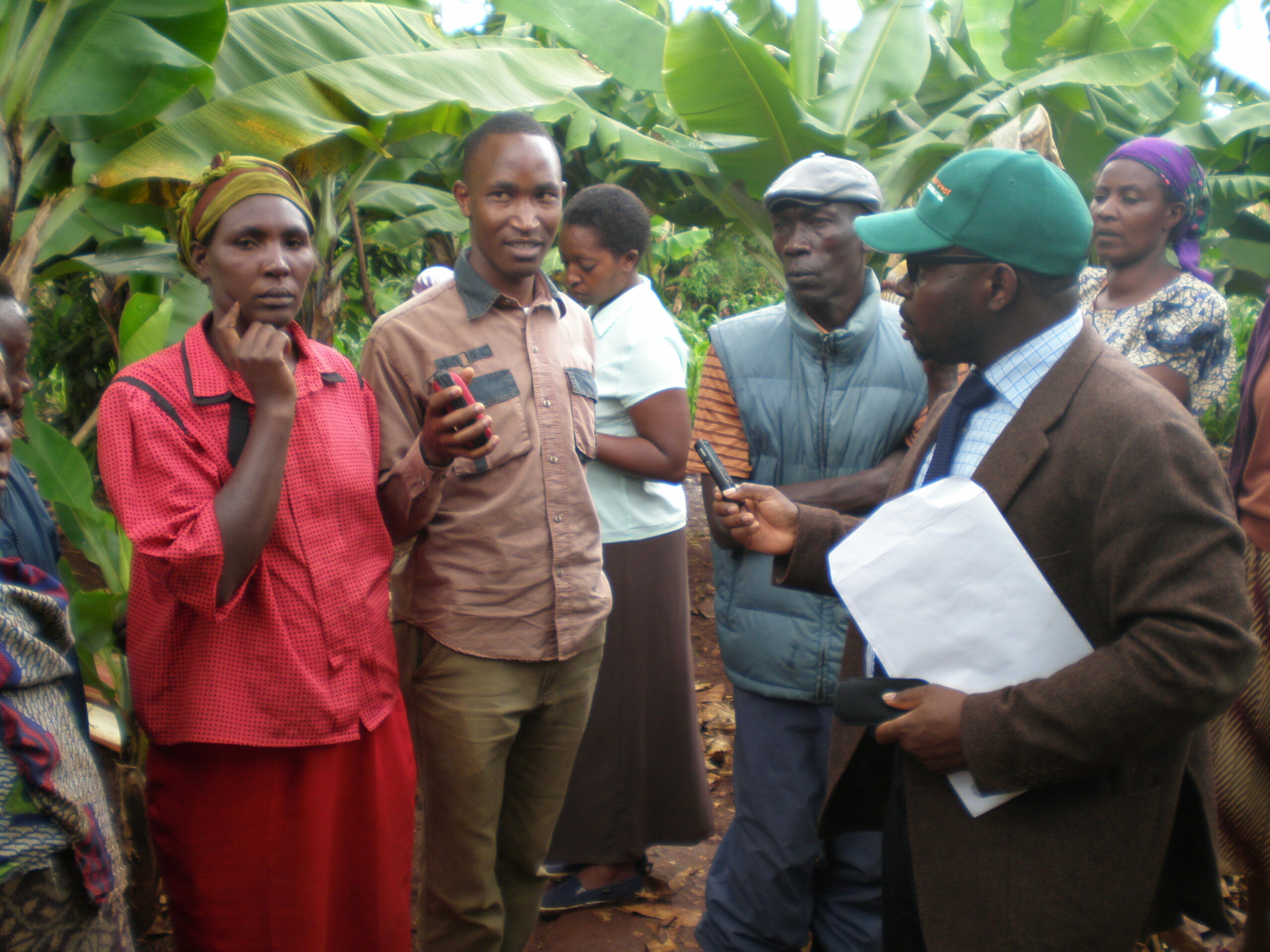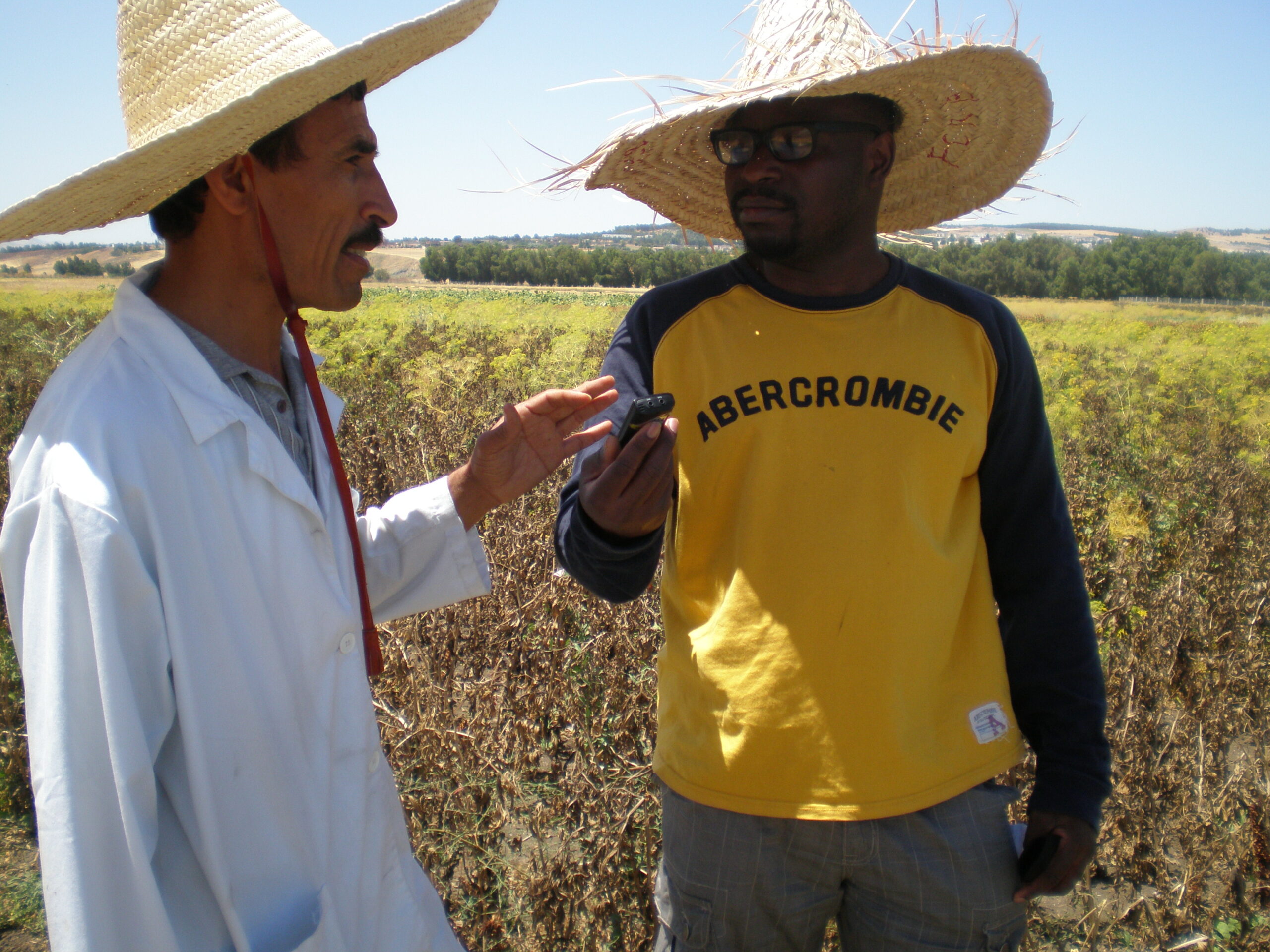When I speak about the connection between food and peace, I’m not thinking in abstractions. I’m thinking of real communities across Africa where a bad harvest can turn into a crisis, where drought or pests can uproot families, where hunger slowly erodes hope until instability takes root.
This is why I often say: food security is peace security.
Africa holds 60% of the world’s uncultivated arable land, yet over 80 million Africans remain food insecure. That contrast weighs heavily on me. It tells us that our challenge is not a lack of potential — it is a lack of systems, innovation, and support reaching the people who need them most.

When Hunger Threatens Peace
If a family goes hungry, peace feels fragile. When food systems fail, the social fabric begins to tear. And when our youth see no future in agriculture, they drift toward instability or migration.
But I have also seen the opposite:
When farmers — especially women and youth — gain access to innovations that work, communities stabilize. They find dignity, trust institutions, and build resilience. In my view, a stable food system is one of the strongest foundations of a peaceful society.
Why Innovation Matters So Deeply to Me
“As the first inaugural laureate of the World Academy of Sciences–M.S. Swaminathan Award for Food and Peace, I believe my decade of research in innovations such as modern biotechnology, which boost agricultural productivity, address food insecurity, and promote peace at the community level, highlights the need to engage key stakeholders, including policymakers, donors, and scientists. By working together, we can ensure that innovations reach the most vulnerable, especially women and youth, helping to combat hunger and malnutrition, improve livelihoods, and lift communities out of poverty.”
Africa cannot secure food or peace without embracing science, technology, policy reform, and partnerships.
Climate-smart agriculture is already showing results. I’ve seen drought-tolerant and early-maturing crop varieties change farmers’ lives. In Niger and Burkina Faso, farmer-managed natural regeneration has revived millions of acres of degraded land — turning hopeless ground into productive fields again.
I’m equally inspired by biotechnology. Gene-edited and genetically modified crops are helping farmers fight pests, diseases, and malnutrition. In Nigeria, for example, our adoption of pod-borer-resistant cowpea and TELA maize has boosted yields and reduced pesticide use. These are not futuristic dreams; they are real stories from real farms.
Digital tools — from M-Pesa to DigiFarm to Hello Tractor — are transforming access to credit, mechanization, markets, and information. And when we link renewable energy (like solar irrigation or cold storage) with agriculture, we strengthen food systems and create opportunities for youth and women.

Science Communication: The Missing Link
One thing I’ve learned in my career is that innovation alone is not enough.
If people don’t trust the science — or don’t understand it — progress stalls.
Policymakers need evidence in clear, accessible language. Communities need to hear the benefits from people they trust. Too often, misinformation shapes policy more than facts do. That’s why we must strengthen the science-policy interface and invest in researchers who generate local evidence.
What I Believe Africa Must Do Now
To truly connect food with peace, we must focus on:
- Investing in agricultural innovation systems — from labs to extension.
- Ensuring policy coherence across food security, climate action, and peacebuilding.
- Building inclusive systems that reach smallholders, especially women and youth.
My Hope for Africa
When a farmer gains knowledge, when a child eats a nutritious meal, when a family lifts itself out of poverty — we aren’t just producing food.
We are building peace.
I dream of an Africa where no one goes hungry, where science drives prosperity, and where peace is cultivated like a well-tended field — with patience, partnership, and purpose.
